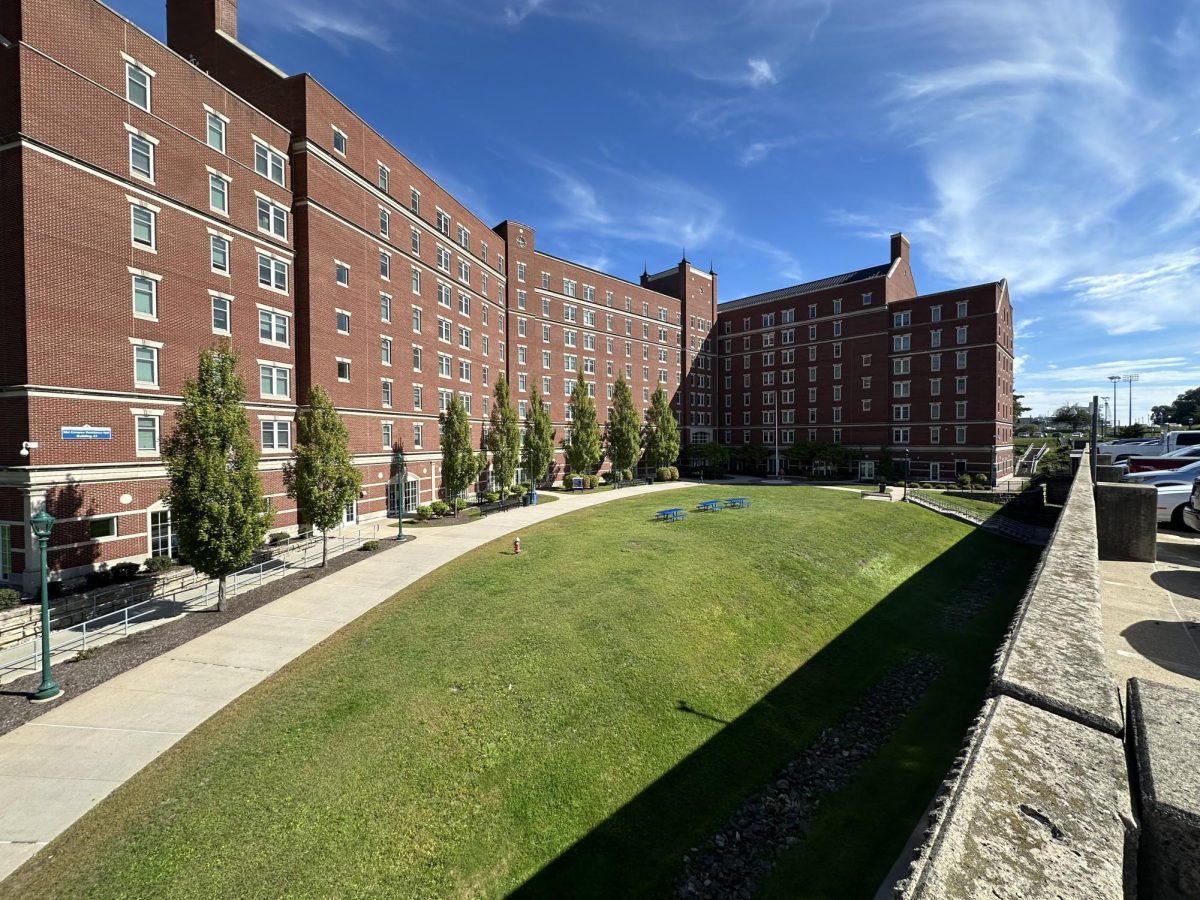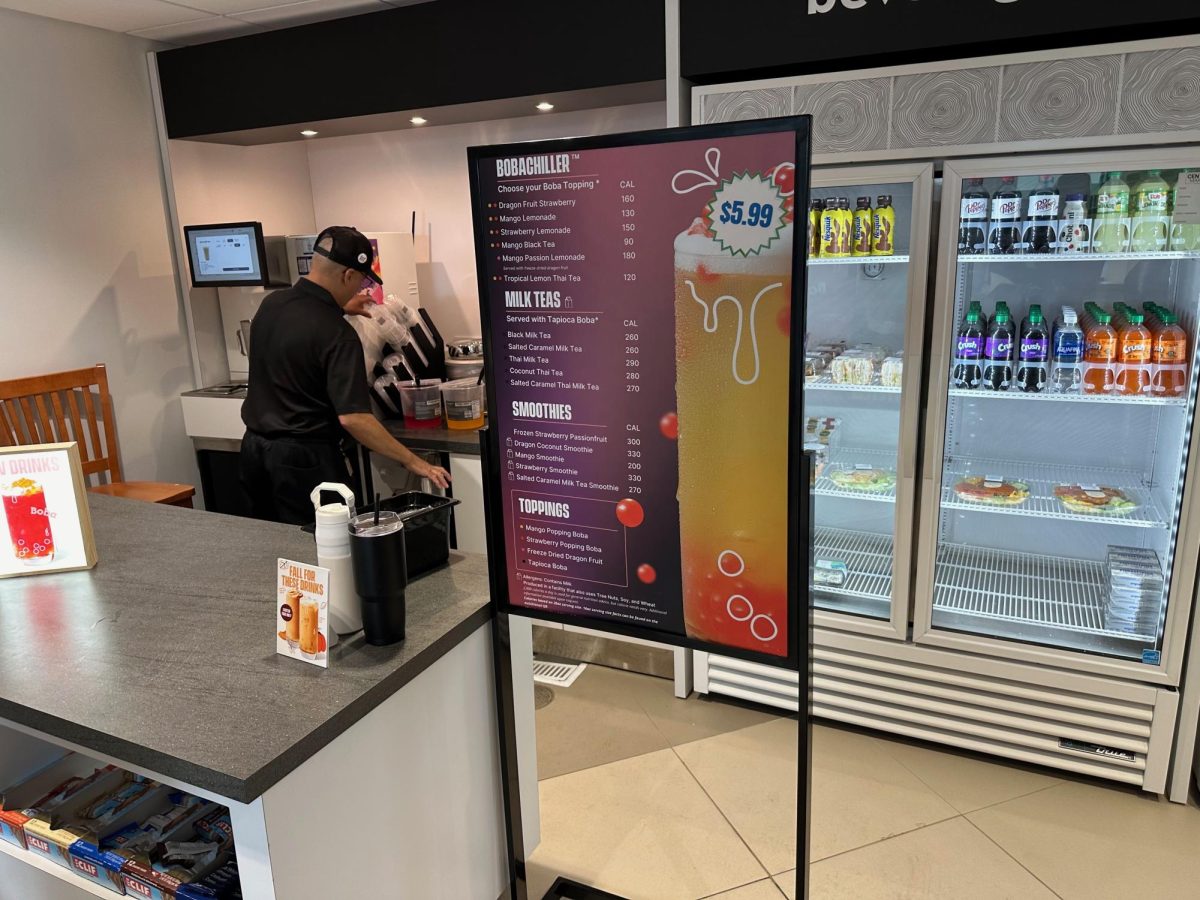Dozens gathered in Central Connecticut State University’s Student Center to hear activists speak on the current state of civil and human rights in Connecticut during Freedom Under Fire: Defending Our Rights, Past and Present. This panel discussion was in coordination with Connecticut Civil Liberties Defense Committee on Sept. 25.
Panelists expressed concerns about threats to migrant communities, LGBTQ liberties, freedom of speech and Palestinian rights.
Juan Fonseca Tapia is the co-founder of Greater Danbury Unites for Immigrants and one of Connecticut’s leading defenders of immigration rights. Tapia brought forth concerns on the ongoing conflict between Immigration and Customs Enforcement [ICE] agents, and the immigrant communities of Danbury.
The city of Danbury has become an epicenter for ICE activity since the Danbury 11, when police officers in collaboration with ICE disguised themselves as labor contractors, resulting in the detention of eleven Ecuadorian residents in search of work in 2006.
“Many of us have been screaming… to everyone in the state about how bad things are, and I’m tired,” Tapia said.
After a week of detainments in August of up to 15 Danbury residents by a group of immigration agents in militant-esque gear, a handful of activists confronted them outside Danbury’s courthouse who were responding to reports that ICE agents were targeting immigrants, resulting in a standoff. Both parties are scheduled to appear in court at a later date.
Videos were shown of the incident, depicting agents attempting to surround, pepper spray, tase and arrest advocates.
The militarization of ICE agents and legalization of racial profiling against migrants, particularly from Latin America, bear striking similarities to plights faced by several communities across the globe. Tapia reflected on the commonalities they go through.
“The struggle of my people is the same struggle for the people of Palestine and black people,” he said.
Tapia has committed himself to advocacy and calls for attention to be placed on constructive actions that benefit our community members and go beyond performance.
A student organizer from Wesleyan University’s Class of 2025, Rosa, shared their experience in establishing student movements across their campus and organizing mass demonstrations.
They told stories of fellow activists, particularly one who was attending the university under a student visa. Following this student’s involvement in pro-Palestine protests, said they were stalked and targeted until they fled the country, unable to attend their own graduation.
Unabated, they brought their voice to their home country where they continued to speak on global issues.
“The government is using the Palestine movement as a testing ground,” Rosa said.
Surveillance, mask bans, and listings have already been used against vocal students across campuses. The result of this test, Rosa claimed, will determine the fate of our existing civil liberties.
“Strategies [used against the free Palestinian movement] will inevitably be used against all other movements,” she said.
Some of the issues mentioned that may be affected include environmental, educational, women’s rights and labor rights movements.
They point to the federal attention on current student movements, including those at Yale University, as evidence of our government’s fear of the power of student activism on college campuses.
College campuses have historically been the central hubs of anti-war and liberation movements, as historian Christine Marie shared with the audience.
Marie has various experiences from being an active organizer since the 1970s. Marie was involved with anti-war and women’s rights movements during the COINTELPRO Vietnam War era.
Marie brought together the past and present with accounts from past movements, their successes and failures, such as Indiana University’s 1962 pro-Cuban protesters and The Charleston Five. Marie said there is a lesson to be learned from these moments of resistance.
“We can fight and we can win,” she said. “We have to organize ourselves around our greatest power.”
That power, she said, is the capacity of working people to organize. Marie emphasizes the urgency for movements to unify behind a central cause, such as the liberation of Mahmoud Khalil. As popular media often depicts the repealing of certain rights, Marie urges the audience to rally behind victories.
“An injury to one is an injury to all,” Rosa said, followed by applause. “It is up to us to defend each other.”


